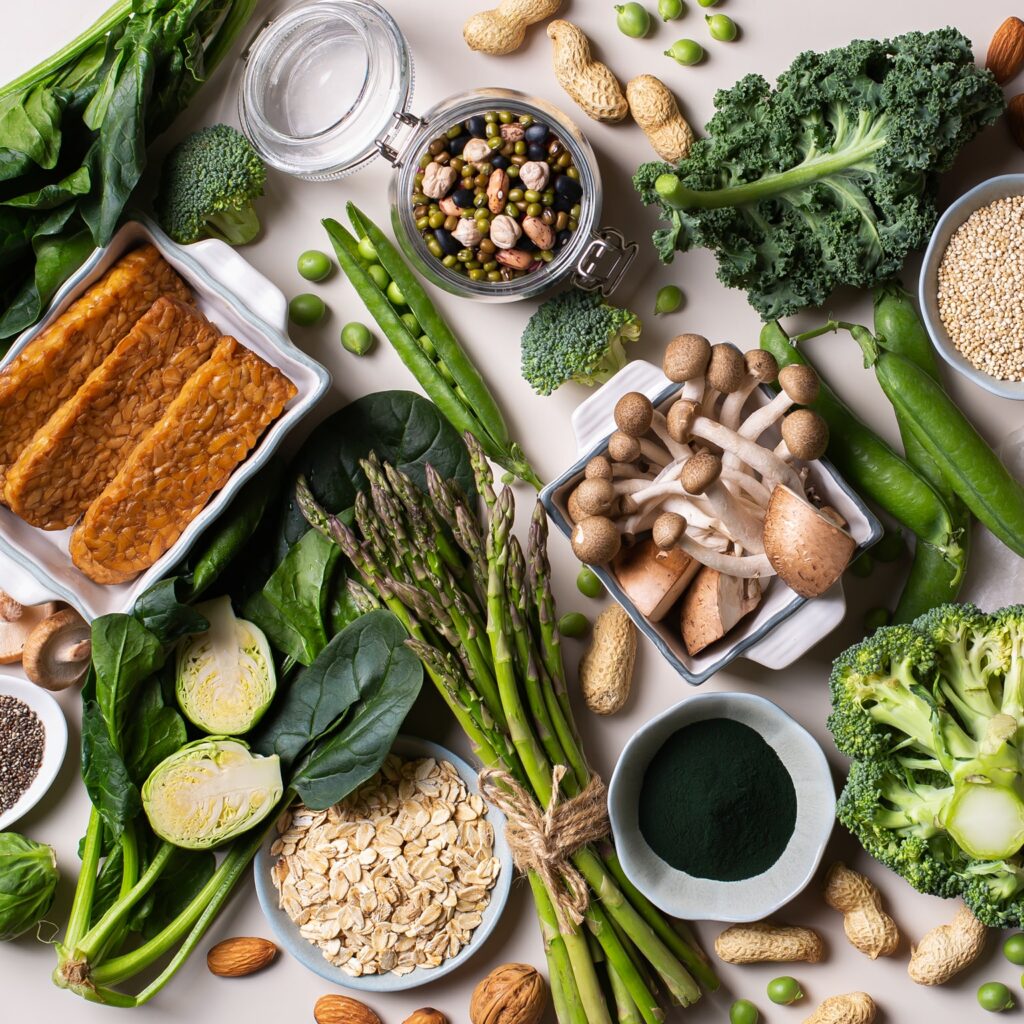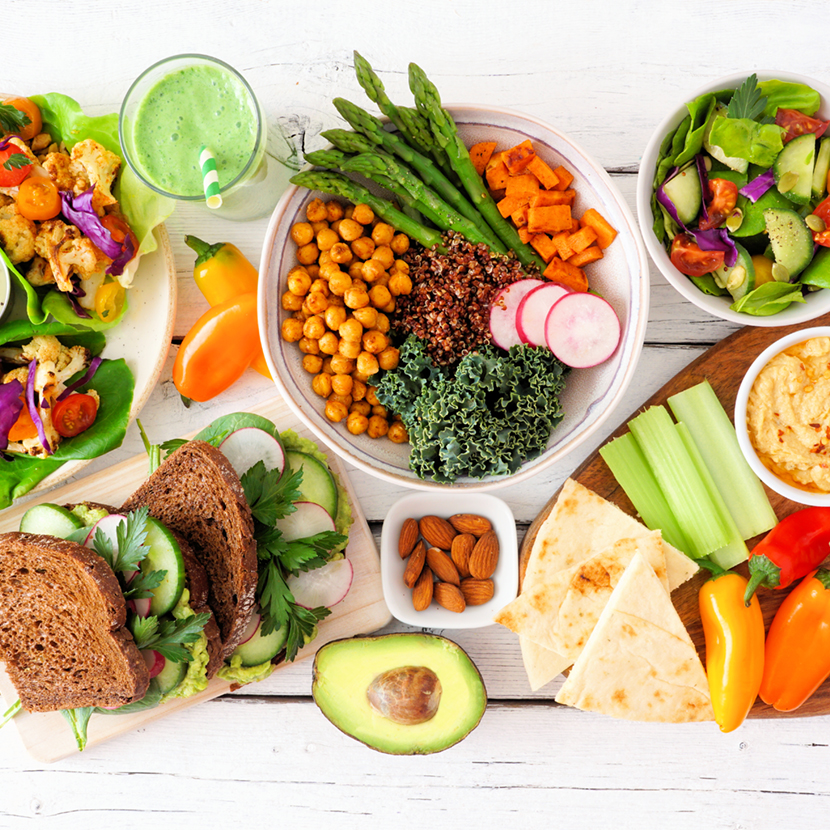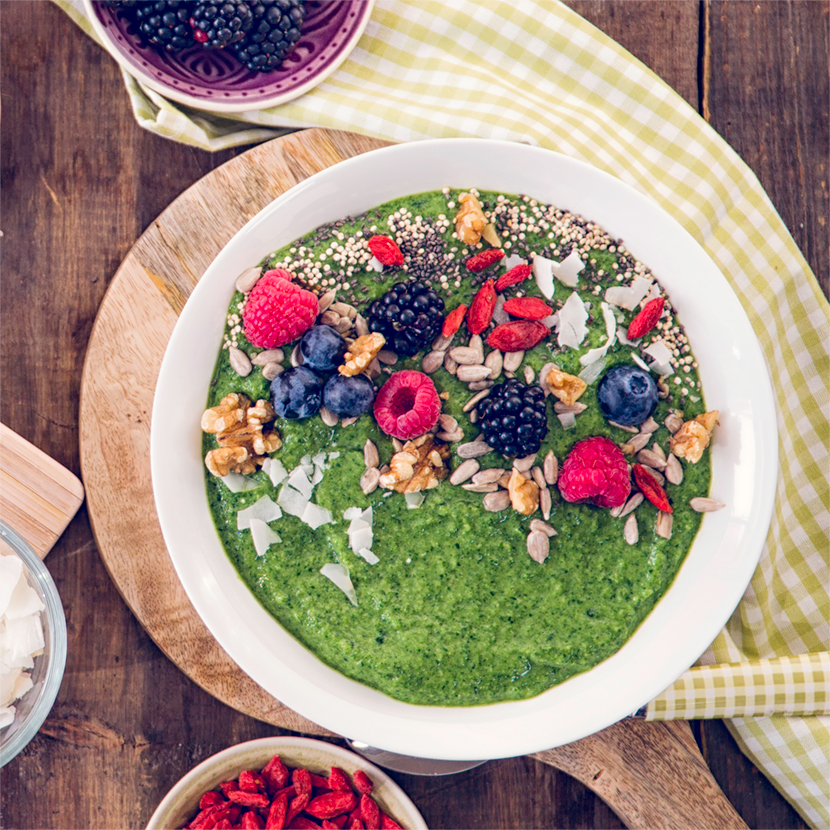HEALTH
These 9 things happen when you stop eating meat


9 positive effects of avoiding animal protein
According to the World Health Organisation (WHO), there are clear guidelines regarding meat consumption: Too much meat is unhealthy. Red and processed meat is also proven to be carcinogenic. An American study goes even further and names specific diseases associated with meat consumption: In addition to cancer, the risk of heart and respiratory diseases, stroke, diabetes, infections, Alzheimer’s as well as liver and kidney diseases increases. For our health, these are therefore compelling arguments in favour of eating less meat or no meat at all. But what happens to my fitness, my metabolism and my body if I skip the sausage sandwich for breakfast and leave out the roast beef for dinner from my diet?



And how easy is it for me to give up meat? In addition to its umami flavour, meat is considered by its fans to be an important source of protein, iron and vitamins. It is therefore easy to fear becoming deficient in these nutrients when giving up meat. However, the good news is that these fears are nutritionally unfounded. Only vitamin B12 is solely found in animal products and must be supplemented in vegan diets. Find out more about the Big 5 supplements that vegans and non-vegans alike should consider here. All other nutrients are found in plant-based foods just as they are found in meat-based meals. The important thing is to know where to look for them.
What remains is the „addiction“ to the flavour of meat. When it comes to eating meat, we Germans are among the leaders, as the latest figures from the German Nutrition Society (DGE) show. With a consumption of around 50 kilograms per capita (in 2018 it was still 60 kilograms), we are still far ahead of the rest of the world when it comes to our appetite for meat. Too much, according to nutrition and health experts. However, trends in a positive direction are emerging. Read our story „Europe’s appetite for change“.
But what are the real benefits of a meat-free diet?

1. The health effect – better biomarkers
As the aforementioned studies have already shown, the health aspect is what counts most. Studies such as the one published in 2019 in the Journal of Nutrition show that important blood values, including cholesterol and insulin, improve with a more plant-based diet. Studies from the so-called twin experiment also point in a similar direction, demonstrating the positive effects of a vegan diet on the cardiovascular system and metabolism. According to these studies, vegans and vegetarians are less likely to suffer from high blood pressure, diabetes and kidney or gallbladder problems. People who follow a vegan or vegetarian diet also fare better in modern cancer research. The risk of heart disease is even reduced by 29% when meat is avoided. It is possibly results like these that prompted the German Nutrition Society to recently (in March 2024) adjust its dietary recommendations and now recommend a much more plant-based diet. The positive effects of a plant-based diet on life expectancy and the quality of life have also been proven. It is best to always consult your doctor, who knows the important biomarkers and blood values to look out for, as well as any nutritional supplements you may need. After all, we do not want a deficiency.

2. The return of the summer figure
Science has proven what our general observation has already shown: a vegan lifestyle makes the kilos drop. According to several studies and a metastudy from Taiwan, giving up meat is associated with a significant reduction in obesity. Changing your diet not only helps you to lose weight and improve your body mass index, but also to maintain your ideal measurements in the long term. Cholesterol levels also improve in this context, as plant-based foods contain less saturated fatty acids. A plant-based diet simply seems to be good for a slim figure. It may also play a role here that many vegetarians live more consciously overall and therefore possibly pay more attention to aspects such as a balanced diet, sufficient exercise, sufficient fluids, regular detox measures, etc.

3. Healthy gastrointestinal flora
The digestive system, immune centre, nutrient provider: Health begins in the gut. This organ fascinates doctors and laypeople alike. Books about it, such as “Darm mit Charme” by Giulia Enders, are experiencing a boom and rightly so. Here we have a key to our health. A healthy flora of „good bacteria“ is essential for our digestive processes in the gastrointestinal tract to function properly. This is also known as the microbiome. Researchers at the University of New York have now been able to scientifically prove that a plant-based diet promotes the number of protective intestinal bacteria. Fibre, which is abundant in fruit and vegetables, especially green leafy vegetables, plays a role in this. Intestinal health is considered by many to be a key to health and well-being in general. A particularly positive effect on the microbiome is attributed to fermented foods (story fermentation), such as sauerkraut, kefir, kimchi and other lactic acid products.

4. A strong immune system
People who eat a plant-based diet are less likely to fall ill. This is the result of a large Australian study. We have already seen under point 3 that the immune function of the intestine also plays a role here. The overall lower susceptibility to infections among vegans may also be explained by the fact that in plant-based cuisine, nutrient- and vitamin-rich vegetable dishes, salads, herbs and fruit end up on our plates much more frequently. Vitamin C, beta-carotene and vitamin A, minerals, secondary plant substances such as flavonoids and sulphides and antioxidants in particular play a role in preventing free radicals and thus cell damage and inflammatory processes in the body. It can be interesting to take a look at superfoods and smoothies.

5. Better sleep and an alert mind
According to a report in Focus on 7 January 2020, doctor Petra Brach has noticed a positive effect on sleep as a result of the plant-based diet: „After just one week, you will feel significantly more alert and fitter. Your digestion works better, which also benefits your sleep,“ says Bracht. One of the correlations is that meaty food lingers longer in the digestive tract and requires more energy (and incidentally also water). This energy is not otherwise available to us during this time. Eating meat before going to bed therefore also impairs the quality of sleep.

6. Vegans are more empathetic
It sounds almost too good to be true, but it has been scientifically proven: People who give up meat or opt for a vegan diet for reasons of animal welfare have a higher capacity for empathy. An Italian research group led by Massimo Filippi and Maria Rossa came to this conclusion back in 2010 and 2012 with the help of brain scans (magnetic resonance imaging), which showed that the corresponding empathy areas in the brain are more active in vegans and vegetarians. Our own experience may confirm this, because anyone who values animal welfare must be able to empathise with other living beings and develop a basic feeling for all living things. However, we can also consciously train empathy in humans and animals. Our environment will thank us for it. The field of so-called mirror neurones offers exciting scientific approaches here. Our animal stories aim to make a small contribution to this.

7. Live more consciously
It sounds like a truism, but it is an essential factor if we want to build a better tomorrow: People, with a more plant-based eating style, often live more consciously and mindfully. Why is that? It’s simple: Vegans have usually already spent a long time dealing with many aspects of life. With the state of our (surrounding) world, the welfare of animals, their own health, etc. They have long been asking questions about where the food on their plates has come from. They may look at supply chains, ingredient lists on food and are familiar with research results from the medical field and other scientific fields. They ask about the consequences of their actions, especially their consumption. Together with their aforementioned empathy, they have broadened their perspective. It’s not all about selfish motives. This attitude of „caring“ is good for everyone involved, we think.

8. The green footprint
This not only changes the processes in our own bodies in a positive way, but also the footprints we leave behind. Especially in terms of sustainability, a vegan lifestyle scores a lot of points. It can be impressively shown that for 1 kilo of meat consumption (depending on the meat) 88 to 141 kilometers of car can be driven with the same amount of CO2 emissions. Another study states that 15% of global greenhouse gas emissions come from the animal industry. What potential savings! Compared to all other diets, the vegan diet has the smallest CO2 footprint.

9. A good sense of smell
Smells are closely linked to pleasure, emotions and memories. Anyone who has had to temporarily do without this sense due to illness knows how important these sensory impressions are for orientation and well-being in everyday life. You can improve your sense of smell by avoiding animal products in your diet. This was confirmed by scientists at Charles University in Prague, who scientifically analysed the olfactory impressions of test subjects. The meat-free group was not only able to differentiate odours better, but also had a body and sweat odour that was rated as more pleasant. Women in particular rated the sweat odour of men who did not eat meat as significantly more pleasant. Well, if that isn’t motivation! Those who give up animal-based foods can therefore not only do something good for themselves, the planet and the animals, but also for their fellow human beings.
Good reasons for taking the first step
9 facts that provide strong arguments in favour of a more plant-based diet, in our opinion. Of course, it doesn’t matter whether you’ve only changed your diet for a week or have been doing so for several months or even years. In any case, vegan fans score points across the board: from health care, immune system strength and well-being to the social competence of empathy and a pleasant appearance – slim and fragrant – there are plenty of strong reasons in favour of plant-based cuisine.
















